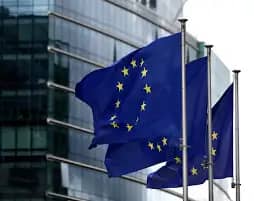
Iliyasu Abdullahi Bah
The European Union has announced a €500,000 (N900 million) humanitarian aid package to address severe acute malnutrition among children and mothers in Northern Nigeria.
This emergency response comes amid alarming malnutrition rates across nine northern states: Adamawa, Benue, Borno, Katsina, Niger, Sokoto, Taraba, Yobe, and Zamfara.
Through the Nigeria Red Cross Society, the funding will provide critical support to approximately 170,000 vulnerable households, including life-saving treatment for over 30,000 severely malnourished children.
The intervention will combine community screening with outpatient care using ready-to-use therapeutic food, while complicated cases will be referred to health centers for specialized treatment.
The nutrition crisis has reached alarming proportions, with 5.44 million children under five acutely malnourished across Northeast and Northwest Nigeria – including 2 million suffering severe acute malnutrition requiring urgent intervention.
The situation continues deteriorating due to multiple factors like ongoing conflict and insecurity disrupting livelihoods, massive displacement of vulnerable populations, reduced access to healthcare services, climate shocks including flooding, poor maternal and child feeding practices
This EU funding forms part of its contribution to the Red Cross’ Disaster Response Emergency Fund (DREF), established in 1979 to rapidly respond to small-scale disasters. The current €12 million partnership between the EU and International Federation of Red Cross enables flexible emergency responses aligned with humanitarian needs.
“The EU remains committed to saving lives and alleviating suffering wherever crises occur,” stated EU officials, emphasizing this intervention reflects European solidarity with vulnerable populations. The program will integrate nutrition support with water, sanitation, hygiene and protection services to enhance family resilience.
As the world’s leading humanitarian donor, the EU continues addressing critical needs in Northern Nigeria during the peak lean season (June-September 2025), when food insecurity typically worsens. The initiative demonstrates the international community’s sustained commitment to Nigeria’s most vulnerable amid complex, overlapping crises.
